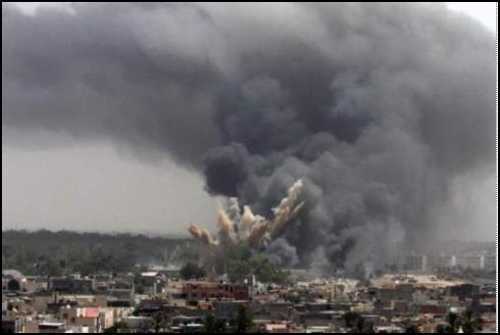The military intervention in Yemen by a US-backed coalition of Arab states will undoubtedly inflame the conflict both in Yemen, and throughout the region. It is likely to be a protracted war involving many actors, each of which is interested in furthering its own political and geopolitical agenda.
However, it is the international reaction to this new regional war which is of particular interest; specifically, the way in which the United States has reacted to this undeniable aggression by its Gulf allies. While Washington has gone to great lengths to paint Russia’s reunification with Crimea and its limited support for the anti-Kiev rebels of eastern Ukraine as “aggression,” it has allowed that same loaded term to be completely left out of the narrative about the new war in Yemen.
So it seems that, according to Washington, aggression is not defined by any objective indicators: use of military hardware, initiation of hostilities, etc. Rather, the United States defines aggression by the relationship of a given conflict to its own strategic interests. In Crimea and Ukraine, Russia is the aggressor because, in defending its own interests and those of Russian people, it has acted against the perceived geopolitical interests of the US. While in Yemen, the initiation by Saudi Arabia and other US-backed countries of an unprovoked war with the expressed goal of regime change, this is not aggression as it furthers Washington’s interests.
Language Versus Reality

